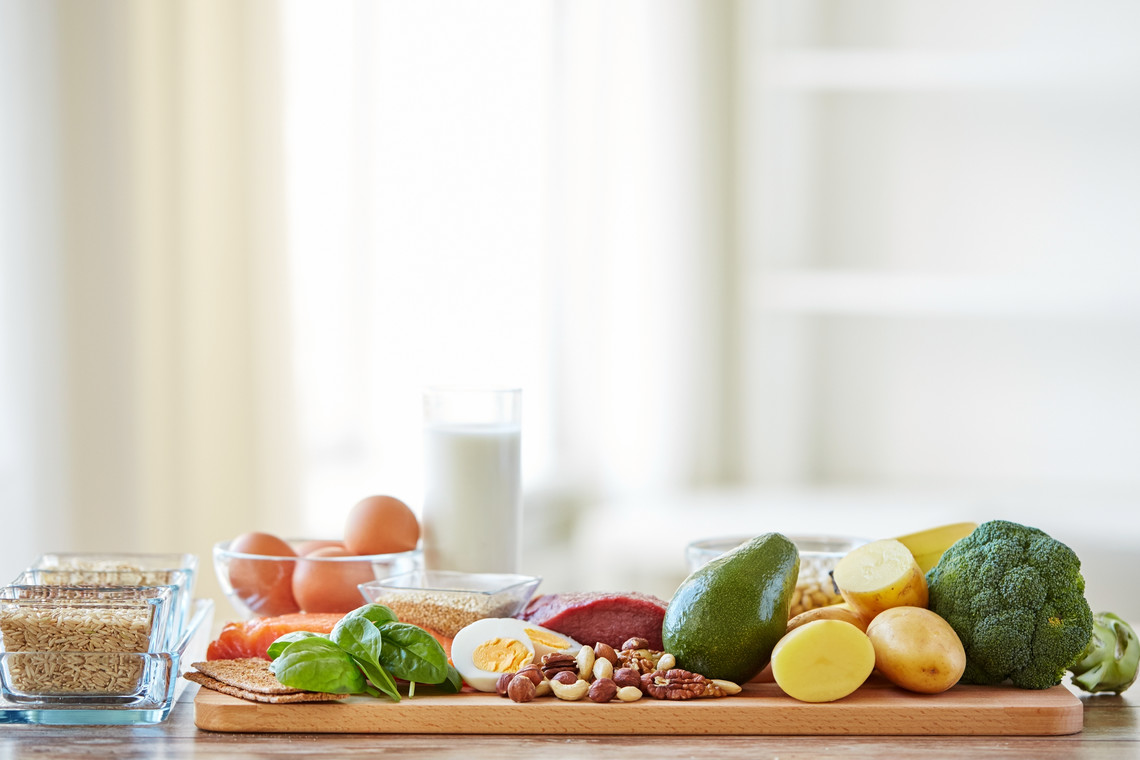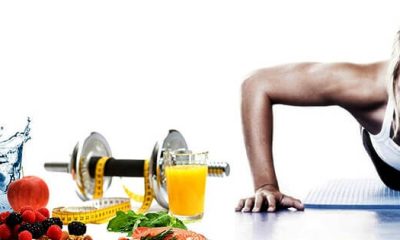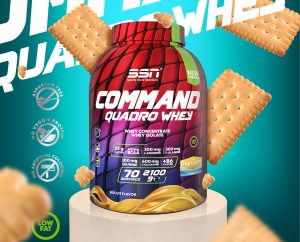Nutrıtıon and Receıpes
Nutrition Tips for Seniors: Promoting Health and Wellness

As individuals age, their nutritional needs change, necessitating a focus on maintaining a healthy diet to support overall health and well-being. This article provides comprehensive nutrition guidance tailored specifically for seniors, highlighting key dietary considerations and how Trainerlist can assist in promoting and sustaining healthy eating habits among older adults.
- Focus on Nutrient-Dense Foods
With advancing age, metabolism tends to slow down, and calorie requirements decrease. Therefore, seniors should prioritize nutrient-dense foods that provide essential vitamins, minerals, and antioxidants:
- Fruits and Vegetables: Aim for a wide variety of colors to maximize nutritional diversity. Examples include leafy greens, berries, citrus fruits, and cruciferous vegetables like broccoli and cauliflower.
- Whole Grains: Opt for whole grains such as oats, quinoa, brown rice, and whole wheat bread to maintain energy levels and support digestive health.
- Lean Proteins: Include sources like poultry (skinless chicken or turkey), fish (salmon, tuna), lean cuts of beef or pork, tofu, legumes (beans, lentils), and nuts for muscle maintenance and repair.
- Healthy Fats: Incorporate sources like avocados, olive oil, nuts (almonds, walnuts), seeds (chia, flaxseed), and fatty fish (salmon, mackerel) rich in omega-3 fatty acids to promote heart health and cognitive function.
Trainerlist connects seniors with certified nutrition experts who can create personalized meal plans focusing on these nutrient-dense foods to enhance overall health and vitality.
- Stay Hydrated
Seniors are more prone to dehydration due to decreased thirst sensation and kidney function changes. Proper hydration is crucial for maintaining bodily functions and preventing health complications such as urinary tract infections and cognitive decline:
- Water Intake: Encourage regular water consumption throughout the day, aiming for at least 8-10 glasses unless otherwise advised by a healthcare professional.
- Hydrating Foods: Incorporate water-rich foods such as cucumber, watermelon, oranges, tomatoes, and soups into meals to supplement fluid intake.
Trainerlist nutrition specialists offer personalized hydration strategies tailored to seniors, emphasizing the importance of fluid balance for overall health maintenance.
- Prioritize Protein
Maintaining muscle mass and strength is essential for mobility, balance, and overall quality of life in seniors. Adequate protein intake supports muscle maintenance, repair, and immune function:
- High-Quality Protein Sources: Include lean meats (chicken, turkey), fish (salmon, trout), eggs, dairy products (Greek yogurt, cottage cheese), legumes (chickpeas, black beans), and soy products (tofu, tempeh).
- Protein Supplements: Consider protein shakes or bars under the guidance of a healthcare provider or nutritionist if dietary protein needs are not met through food alone.
Trainerlist offers tailored nutrition counseling to ensure seniors achieve adequate protein intake, supporting physical function and overall health.
- Mind Your Portions
As appetite decreases with age, portion control becomes essential to prevent overeating and maintain a healthy weight. Seniors can manage portion sizes effectively by:
- Plate Composition: Fill half of your plate with non-starchy vegetables like spinach or carrots, one-quarter with lean protein (grilled chicken breast or fish), and one-quarter with whole grains or starchy vegetables (brown rice or sweet potatoes).
- Snack Wisely: Choose nutrient-dense snacks such as fresh fruit, yogurt with nuts, or whole-grain crackers with cheese to curb hunger between meals.
Trainerlist nutritionists provide practical tips and personalized meal plans to help seniors achieve balanced nutrition through mindful eating practices.
- Limit Sodium and Added Sugars
Excess sodium and added sugars can contribute to hypertension, heart disease, and other chronic conditions common among seniors. To maintain heart health and overall well-being:
- Sodium Reduction: Opt for fresh or minimally processed foods, read labels for sodium content, and use herbs, spices, or citrus juices instead of salt for flavoring.
- Sugar Control: Choose unsweetened or naturally sweetened options like fresh fruits or plain yogurt instead of sugary snacks and desserts.
Trainerlist offers guidance on navigating grocery aisles and preparing meals with reduced sodium and added sugars, promoting healthier food choices.
- Seek Professional Guidance
Consulting with a registered dietitian or nutritionist specializing in senior nutrition can provide personalized advice tailored to individual health needs and goals:
- Comprehensive Nutrition Assessment: Assess current dietary habits, medical history, and nutritional deficiencies.
- Personalized Meal Planning: Create tailored meal plans that consider dietary preferences, allergies, and cultural considerations.
- Lifestyle Modifications: Provide guidance on managing chronic conditions such as diabetes or hypertension through diet and lifestyle adjustments.
Trainerlist connects seniors with certified nutrition experts who offer specialized knowledge in senior nutrition, ensuring comprehensive support for healthy aging and optimal quality of life.
Trainerlist: Supporting Senior Nutrition
Trainerlist facilitates access to qualified nutrition professionals committed to enhancing senior health through expert guidance and support. Whether seeking personalized nutrition counseling, assistance with meal planning, or specialized dietary advice, Trainerlist ensures seniors receive tailored strategies to thrive in their golden years.
Nutrıtıon and Receıpes
Healthy Dinner Ideas Under 500 Calories

Maintaining a nutritious diet without compromising on flavor or satisfaction is essential for overall well-being. Below are ten delicious dinner ideas, each under 500 calories per serving, designed to provide nourishment and culinary enjoyment:
- Grilled Lemon Herb Chicken Breast Begin with a succulent grilled chicken breast marinated in a delightful blend of fresh lemon juice, minced garlic, and aromatic herbs such as rosemary and thyme. This dish not only packs a punch of protein but also tantalizes the taste buds with its zesty flavors. Accompany the chicken with a vibrant medley of steamed vegetables like tender broccoli florets, crunchy carrots, and crisp snap peas, creating a balanced and wholesome meal that’s as visually appealing as it is nutritious.
- Baked Salmon with Roasted Vegetables Indulge in the heart-healthy goodness of baked salmon, dressed with a drizzle of extra virgin olive oil, zest of lemon, fragrant dill, and a pinch of salt and pepper. Roasted to tender perfection, the salmon pairs harmoniously with a side of oven-roasted vegetables—think colorful bell peppers, caramelized zucchini, and burst-in-your-mouth cherry tomatoes. Rich in omega-3 fatty acids and antioxidants, this dish not only satisfies your palate but also supports overall health.
- Quinoa and Black Bean Salad For a refreshing and protein-packed option, prepare a quinoa and black bean salad infused with vibrant colors and flavors. Combine fluffy quinoa with hearty black beans, sweet corn kernels, creamy avocado chunks, and a generous handful of fresh cilantro. Toss gently with a zesty lime vinaigrette, creating a light yet satisfying salad that’s perfect for those warm summer evenings or as a quick lunch option. This salad not only provides essential nutrients and dietary fiber but also keeps you feeling full and energized.
- Turkey Taco Lettuce Wraps Transform your taco night with these turkey taco lettuce wraps, offering a lighter take on the beloved Tex-Mex favorite. Sauté lean ground turkey with fragrant taco seasoning and diced onions until golden brown and aromatic. Spoon the flavorful turkey mixture into crisp lettuce leaves, adding your choice of toppings such as vibrant salsa, creamy avocado slices, and a sprinkle of shredded cheese. Low in carbs yet high in flavor, these wraps are a satisfying alternative that won’t weigh you down.
- Vegetable Stir-Fry with Tofu Delight in a colorful and nutritious stir-fry featuring tofu and an assortment of crisp vegetables. Sauté tofu until golden and crisp, then add a vibrant mix of bell peppers, tender broccoli florets, sweet carrots, and snap peas to the sizzling pan. Season with a savory blend of soy sauce, minced garlic, and fresh ginger, infusing the dish with layers of umami and aromatic flavors. Serve over a bed of nutty brown rice or protein-rich quinoa for a wholesome meal that’s both satisfying and nourishing.
- Zucchini Noodles with Pesto and Cherry Tomatoes Elevate your dinner with zucchini noodles tossed in a homemade pesto sauce and garnished with juicy cherry tomatoes. Using a spiralizer, transform fresh zucchini into delicate strands that cook quickly in a hot skillet until tender yet still al dente. Toss with a fragrant basil pesto sauce, made with fresh basil leaves, toasted pine nuts, Parmesan cheese, and a drizzle of extra virgin olive oil. The addition of cherry tomatoes adds a burst of sweetness and acidity, balancing the richness of the pesto. This dish is perfect for those seeking a low-carb, gluten-free alternative to traditional pasta dishes.
- Greek Chicken Salad Transport yourself to the sunny shores of Greece with a satisfying Greek chicken salad that’s bursting with Mediterranean flavors. Grilled chicken breast strips are nestled atop a bed of crisp mixed greens, accompanied by cool cucumber slices, plump cherry tomatoes, briny Kalamata olives, and tangy feta cheese crumbles. Drizzle with a light vinaigrette made from extra virgin olive oil, freshly squeezed lemon juice, and aromatic oregano, creating a salad that’s both refreshing and fulfilling. Packed with lean protein, vitamins, and minerals, this salad is a delicious way to enjoy a nutritious meal without sacrificing taste.
- Spaghetti Squash with Marinara Sauce Experience the comfort of pasta night with a healthier twist by preparing spaghetti squash with marinara sauce. Roast spaghetti squash until the flesh becomes tender and can be easily shredded into delicate strands resembling spaghetti. Top with a robust marinara sauce made from ripe tomatoes, garlic, onions, and a hint of Italian seasoning. Sprinkle with freshly grated Parmesan cheese for a touch of indulgence without the guilt. This dish is low in calories and carbohydrates, making it ideal for those watching their intake while still enjoying a comforting meal.
- Baked Cod with Steamed Broccoli Savor the mild yet flavorful taste of baked cod fillets seasoned with a blend of lemon pepper seasoning and a squeeze of fresh lemon juice. Bake until the fish is tender and flakes easily with a fork. Serve alongside steamed broccoli florets, which add a vibrant burst of color and essential nutrients. This light and nutritious meal is rich in lean protein, omega-3 fatty acids, and vitamins, making it a wholesome choice for dinner that’s both satisfying and health-conscious.
- Vegetarian Lentil Soup Warm up with a hearty vegetarian lentil soup that’s as comforting as it is nutritious. Simmer tender lentils with diced tomatoes, carrots, celery, and onions in a flavorful vegetable broth seasoned with aromatic spices like cumin, coriander, and smoked paprika. The result is a rich and satisfying soup that’s packed with plant-based protein, dietary fiber, and essential nutrients. Enjoy this soup on a chilly evening as a wholesome meal that nourishes the body and warms the soul.
These ten healthy dinner ideas under 500 calories per serving prove that nutritious eating can be both delicious and satisfying. Whether you’re looking to maintain a balanced diet or simply enjoy flavorful meals without the guilt, these dishes offer a variety of options to suit every palate and dietary preference. Embrace the benefits of wholesome ingredients and culinary creativity as you embark on a journey toward health and wellness with each nutritious bite.
Nutrıtıon and Receıpes
Top 5 Essential Foods for Athletes and Their Health Benefits

Athletes rely on proper nutrition to fuel their performance, support muscle recovery, and maintain overall health. Incorporating nutrient-dense foods into their diets is crucial. Here are five powerhouse foods that provide a range of benefits for athletes at all levels:
1. Bananas
Bananas are a staple in many athletes’ diets for good reason. They are rich in carbohydrates, which serve as a quick source of energy. This makes them an excellent choice for a pre-workout snack to boost performance. Additionally, bananas contain potassium, a mineral that plays a key role in muscle function and electrolyte balance. This makes them equally beneficial as a post-workout snack to aid in muscle recovery.
2. Oats
Oats are a versatile grain that provides athletes with sustained energy due to their high content of complex carbohydrates and fiber. Unlike simple carbohydrates, which provide a quick burst of energy followed by a crash, the complex carbohydrates in oats release energy gradually, ensuring endurance during long workouts or competitions. Oats also contain protein, along with essential vitamins and minerals such as iron and B vitamins. These nutrients support overall health and contribute to sustained energy production, making oats a valuable addition to an athlete’s diet.
3. Greek Yogurt
Greek yogurt has gained popularity among athletes for its high protein content. Protein is essential for muscle repair and growth, making Greek yogurt an ideal post-workout snack to aid in recovery. In addition to protein, Greek yogurt contains probiotics, which promote gut health and support immune function. This combination of protein and probiotics makes Greek yogurt a nutritional powerhouse that supports both physical performance and overall well-being.
4. Salmon
Salmon is renowned for its high content of omega-3 fatty acids, which are beneficial for athletes in multiple ways. Omega-3s possess anti-inflammatory properties, which can help reduce muscle soreness and support recovery after intense workouts. Moreover, these fatty acids support cardiovascular health, contributing to optimal circulation and oxygen delivery during exercise. Salmon is also an excellent source of high-quality protein, as well as vitamin D and B vitamins, which play crucial roles in energy metabolism and muscle function. Incorporating salmon into the diet provides athletes with a comprehensive range of nutrients that support performance and recovery.
5. Quinoa
Quinoa is a nutrient-dense whole grain that stands out for its complete protein profile, containing all nine essential amino acids. This makes quinoa an excellent choice for vegetarian and vegan athletes who may struggle to obtain complete proteins from plant-based sources alone. In addition to protein, quinoa is rich in fiber, aiding in digestion and providing a steady release of energy throughout workouts. Quinoa also contains a variety of vitamins and minerals, including magnesium, phosphorus, and folate, which support overall health and well-being. Its complex carbohydrates further contribute to sustained energy levels, making quinoa a valuable addition to the diet of any athlete seeking optimal performance and recovery.
Incorporating These Foods into Your Diet
Incorporating these nutrient-dense foods into your diet can help optimize performance, aid in muscle recovery, and support overall health for athletes of all levels. Whether consumed as a snack, part of a meal, or included in a post-workout recovery shake, these foods provide a combination of carbohydrates, proteins, healthy fats, vitamins, and minerals that are essential for athletes striving to achieve their best.
By prioritizing nutrient-dense foods like bananas, oats, Greek yogurt, salmon, and quinoa, athletes can ensure they are fueling their bodies with the necessary nutrients to support their active lifestyles. Whether training for a competition or simply maintaining fitness, a well-rounded diet that includes these foods can make a significant difference in both performance and recovery.
Nutrıtıon and Receıpes
Tips for Healthy Eating: Enhance Your Well-Being

Maintaining a healthy diet is fundamental for overall well-being and plays a crucial role in preventing various chronic diseases. Whether you’re aiming to boost energy levels, manage weight, or support your immune system, adopting healthy eating habits can make a significant difference. Here are practical tips to help you achieve a balanced and nutritious diet:
1. Include a Variety of Nutrient-Rich Foods: Embrace diversity in your diet by incorporating a wide range of nutrient-rich foods. Focus on consuming plenty of fruits, vegetables, whole grains, lean proteins (such as poultry, fish, beans, and tofu), and healthy fats (like avocados, nuts, and olive oil). Each of these food groups provides essential vitamins, minerals, antioxidants, and fiber necessary for optimal health.
2. Control Portion Sizes: Practice portion control to prevent overeating. Use smaller plates, bowls, and utensils to help manage portion sizes effectively. Pay attention to your body’s hunger and fullness cues, and avoid distractions while eating to foster mindful eating habits.
3. Limit Processed Foods: Minimize consumption of processed and packaged foods, which are often high in added sugars, unhealthy fats (trans fats and saturated fats), and sodium. Opt for whole, unprocessed foods as much as possible. Choose fresh fruits and vegetables, whole grains, lean meats, and natural dairy products over processed alternatives.
4. Stay Hydrated: Hydration is essential for overall health and well-being. Aim to drink an adequate amount of water throughout the day. Limit sugary beverages like sodas and fruit juices, and instead, opt for water, herbal teas, or infused water to stay hydrated without added sugars or artificial ingredients.
5. Balance Macronutrients: Ensure each meal includes a balance of carbohydrates, proteins, and fats to provide sustained energy and promote satiety. Opt for complex carbohydrates (such as whole grains and legumes), lean proteins, and healthy fats (found in foods like nuts, seeds, and fatty fish) to support optimal nutrition.
6. Limit Added Sugars: Reduce your intake of foods and beverages high in added sugars, including candies, pastries, sugary cereals, and sweetened snacks. Instead, satisfy your sweet cravings with naturally sweet options like fresh fruits, which also provide essential vitamins, minerals, and fiber.
7. Cook at Home: Prepare meals at home using fresh, whole ingredients whenever possible. Cooking at home allows you to have better control over the ingredients and cooking methods used, making it easier to make healthier choices and avoid hidden sugars, unhealthy fats, and excessive sodium found in many restaurant and packaged meals.
8. Practice Mindful Eating: Develop mindful eating habits by paying attention to your food choices, eating behaviors, and how different foods make you feel. Eat slowly, chew thoroughly, and savor the flavors and textures of your food. Mindful eating helps you recognize hunger and fullness cues, preventing overeating and promoting a healthier relationship with food.
9. Plan Ahead: Plan your meals and snacks ahead of time to ensure you have nutritious options available throughout the week. Batch cook and prep ingredients in advance to save time and make healthy eating more convenient, especially during busy days.
10. Seek Professional Guidance: Consult with a registered dietitian or nutritionist for personalized nutrition advice and guidance. They can help you create a tailored meal plan that meets your specific dietary needs, health goals, and lifestyle preferences. Professional guidance can provide clarity on nutritional requirements and support you in making informed decisions about your diet.
Incorporating these tips into your daily routine can help you establish and maintain healthy eating habits that support your overall health and well-being. Remember, achieving a balanced diet is about progress, not perfection. Focus on consistency and sustainability in your approach to nutrition to achieve long-term health benefits.
-

 Traınıng Tıps2 yıl ago
Traınıng Tıps2 yıl agoPersonal Trainer Prices and Finding Affordable Private Trainers on Trainerlist
-

 Other Sport Branches2 yıl ago
Other Sport Branches2 yıl agoWhat is a Plank Exercise?
-

 Other Sport Branches2 yıl ago
Other Sport Branches2 yıl agoWhat is a Burpee Exercise?
-

 Other Sport Branches2 yıl ago
Other Sport Branches2 yıl agoBoxing in Canada: History, Famous Boxers, and Trainerlist
-

 Other Sport Branches2 yıl ago
Other Sport Branches2 yıl agoYoga in Canada: History, Famous Practitioners, and Trainerlist
-

 Muscle Buıldıng2 yıl ago
Muscle Buıldıng2 yıl agoHow to Train for Muscle Gain: Effective Workout Tips for Building Muscle
-

 Other Sport Branches2 yıl ago
Other Sport Branches2 yıl agoIce Hockey in Canada: History, Famous Athletes, and Trainerlist
-

 Other Sport Branches2 yıl ago
Other Sport Branches2 yıl agoBasketball in Canada: History, Famous Athletes, and Trainerlist





























